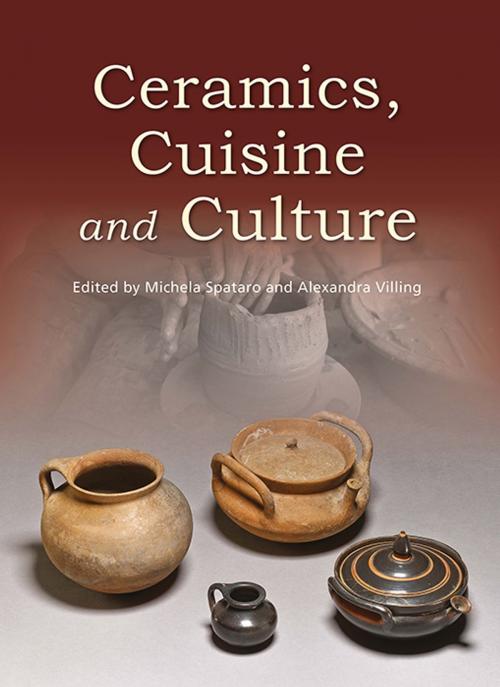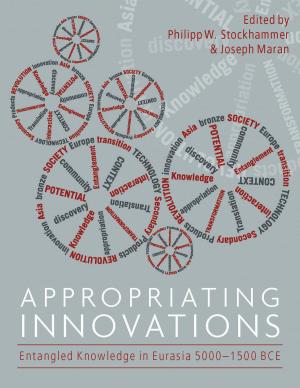Ceramics, Cuisine and Culture
The archaeology and science of kitchen pottery in the ancient mediterranean world
Nonfiction, History, Ancient History, Greece, Rome| Author: | Michela Spataro, Alexandra Villing | ISBN: | 9781782979487 |
| Publisher: | Oxbow Books | Publication: | October 31, 2015 |
| Imprint: | Oxbow Books | Language: | English |
| Author: | Michela Spataro, Alexandra Villing |
| ISBN: | 9781782979487 |
| Publisher: | Oxbow Books |
| Publication: | October 31, 2015 |
| Imprint: | Oxbow Books |
| Language: | English |
The 23 papers presented here are the product of the interdisciplinary exchange of ideas and approaches to the study of kitchen pottery between archaeologists, material scientists, historians and ethnoarchaeologists. They aim to set a vital but long-neglected category of evidence in its wider social, political and economic contexts. Structured around main themes concerning technical aspects of pottery production; cooking as socioeconomic practice; and changing tastes, culinary identities and cross-cultural encounters, a range of social economic and technological models are discussed on the basis of insights gained from the study of kitchen pottery production, use and evolution. Much discussion and work in the last decade has focussed on technical and social aspects of coarse ware and in particular kitchen ware. The chapters in this volume contribute to this debate, moving kitchen pottery beyond the Binfordian ‘technomic’ category and embracing a wider view, linking processualism, ceramic-ecology, behavioral schools, and ethnoarchaeology to research on historical developments and cultural transformations covering a broad geographical area of the Mediterranean region and spanning a long chronological sequence.
The 23 papers presented here are the product of the interdisciplinary exchange of ideas and approaches to the study of kitchen pottery between archaeologists, material scientists, historians and ethnoarchaeologists. They aim to set a vital but long-neglected category of evidence in its wider social, political and economic contexts. Structured around main themes concerning technical aspects of pottery production; cooking as socioeconomic practice; and changing tastes, culinary identities and cross-cultural encounters, a range of social economic and technological models are discussed on the basis of insights gained from the study of kitchen pottery production, use and evolution. Much discussion and work in the last decade has focussed on technical and social aspects of coarse ware and in particular kitchen ware. The chapters in this volume contribute to this debate, moving kitchen pottery beyond the Binfordian ‘technomic’ category and embracing a wider view, linking processualism, ceramic-ecology, behavioral schools, and ethnoarchaeology to research on historical developments and cultural transformations covering a broad geographical area of the Mediterranean region and spanning a long chronological sequence.















